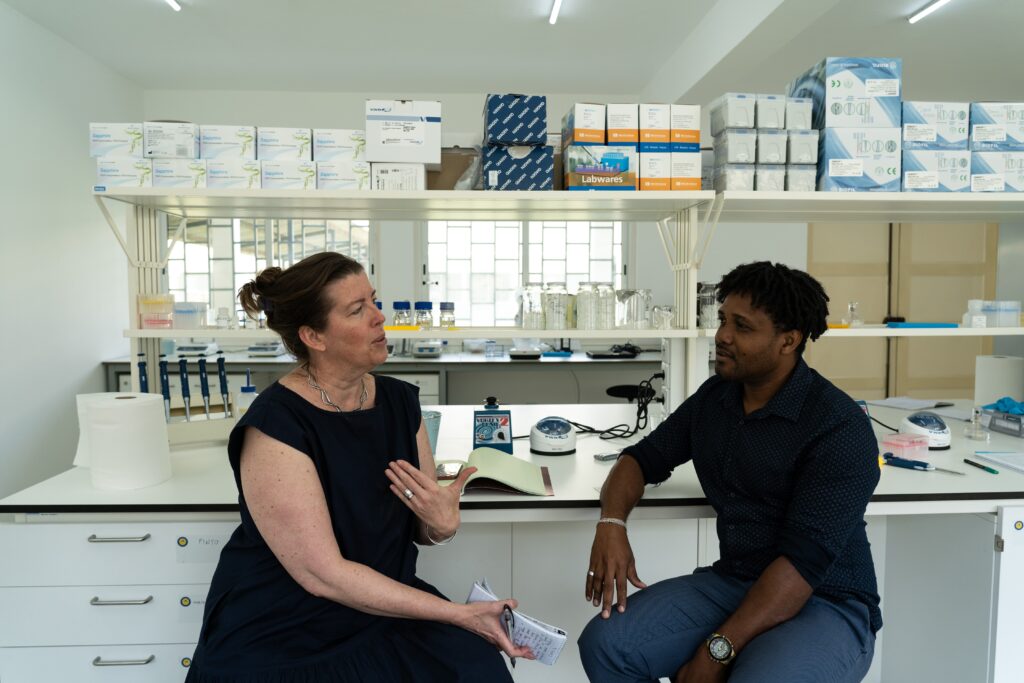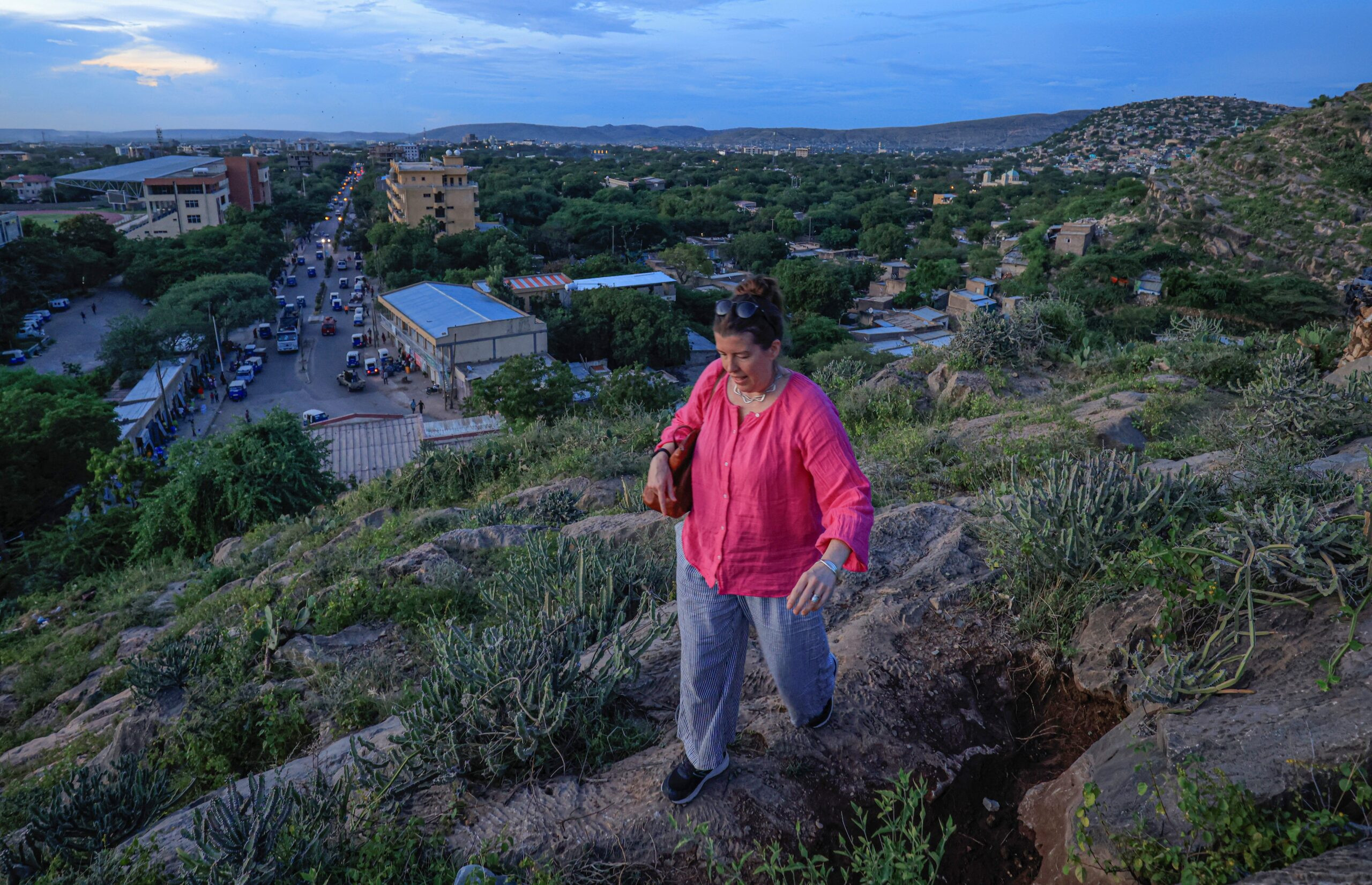In an interview with Malaria No More, New York Times global health reporter, Stephanie Nolen, discusses her recent in-depth series on mosquito-borne disease, including her reporting from five countries in Africa and Latin America. Throughout her travels, Nolen learned about the impact of climate change on mosquito-borne disease, the rise of the urban Anopheles stephensi mosquito species in Africa; and reports on new tools and technologies to mosquito-proof the most impacted homes and communities from Tanzania to Colombia.
What compelled you to do an entire series on mosquito-borne disease?
NOLEN: I set out to write a basic news story. Like, here's some good news about some new technologies that are coming…and holy cow! It only took a couple of phone calls to discover that there was a lot of bad news in the world of mosquitoes…And then it just was kind of one of those things where every phone call that I made led me to another person who told me another thing that was kind of terrifying…And I'm kind of embarrassed to say, as a global health reporter that I had kind of taken my eye off the ball.
Where did your reporting take you and what did you find?
NOLEN: My first trip was to the United States, and I went to the American Society of Tropical Medicine and Hygiene (ASTMH) conference, because…I wanted to enlist the help of those researchers.
Then I went to Kenya to look at some of the amazing clinical trials that are being done by researchers at the Kenya Medical Research Institute, and they're trialing some of those technologies that I was initially interested in…The thing that I loved about that trip was I saw so much great science.
Then I went to Columbia to look at Wolbachia… I thought, these are the kinds of solutions that we need, right? That cut across individual diseases, individual species, individual geographies. You need some big, large-scale solutions.
I went to Ethiopia to look at Anopheles stephensi, and the incredible threat that's represented by an insecticide resistant urban dwelling mosquito and the number of people that that puts potentially at risk in Africa….It's been a rural disease. And all of a sudden, as if overnight, you have an urban mosquito that tolerates heat and tolerates drought and breeds in a bottle cap and is spreading really quickly…It's as if you walked into my local health clinic in Boston one day and the hallways were full of people who had like fevers and headaches and were miserable. You don't test for malaria because there was no malaria in Boston… And then all of a sudden there was.
I went to …the Gulf of Guinea, a tiny little island country, because it's one of the proposed test sites for genetically modified mosquitoes…It's an interesting idea because if you've got a proof of concept out of that, you could theoretically use it for other diseases as well.
And I went to Tanzania for the for the last story in a project which asks the question – so we spend $22 billion a year trying to control mosquitoes through insecticides and nets and all these things – but if you came at it from the other direction, if you left the mosquitoes alone and you just tried to protect the people, what would that take? And I was with some amazing researchers from the Africa Health Institute, again, in a super high malaria prevalence area where we just went into villages. We walked around looking at people's houses and we asked people… what it would take to improve people's houses…but building everybody a malaria proof house is like obviously not realistic…In most cases, it's not a whole house. It's a new door or a new roof or window screens…And these are things people are trying to do themselves over time.
And if you were able to give people through subsidized building materials or low interest loans… the tools to improve those houses…what would that cost and how does it stack up against what we spend now on these other methods?

You concluded that the mosquitoes are winning. Did you also find hope?
NOLEN: The hope…is those scientists…it's all of the very smart young people who are working on this. But it’s a really good question. I guess the thing that makes me reluctant to answer is the scale of the unknowns…Climate change is shifting where mosquitoes are and what they do in these places. And so…it does make me hopeful that great science is happening and that some of these solutions seem to hold the promise of being easily adaptable to responds to different places, different situations, different pathogens, but... it's a very rapidly evolving threat that we don't really understand.
Based on your reporting, is enough attention being paid to the intersection of climate and health?
NOLEN: There's more…I feel like especially in the last year, I would say I've really seen that conversation become a lot more robust.
For example, my own understanding going into this was thinking about mosquito habitat and more warmer places and wet places. But, you know, 8% of malaria cases every year happen in refugees. And what's a huge driver of refugee populations? …Climate refugees. Increasingly, they're people who've been driven out of where they were living, where they might have had a higher quality of housing, into more vulnerable areas because of climate change. And so, and they become vulnerable to malaria.
And so, I think there's just lots of ways in which the changing climate is going to affect people's health…I don't feel like enough attention is paid to any of this stuff. … I definitely feel like it's a larger conversation.
Like, I think when you get dengue in France, when you have local transmission of malaria in the United States…maybe the consequence of some of these unfortunate events is going to be that we have a more robust global conversation about some of these things. It's not just rural Tanzania that's affected.
Based on your reporting, what else needs to be included in that growing climate-health conversation?
NOLEN: So much of what I see in my travels and my reporting comes down to a real … absence of basic primary care…I would like to see more of that conversation be …malaria…dengue, yes…but also…rooted in this kind of more accessible, more equitable health care system.
Did anything surprise you when you did this series?
NOLEN: [Mosquitoes] are really interesting… I just had no idea! … I have a new respect for the mosquito.



